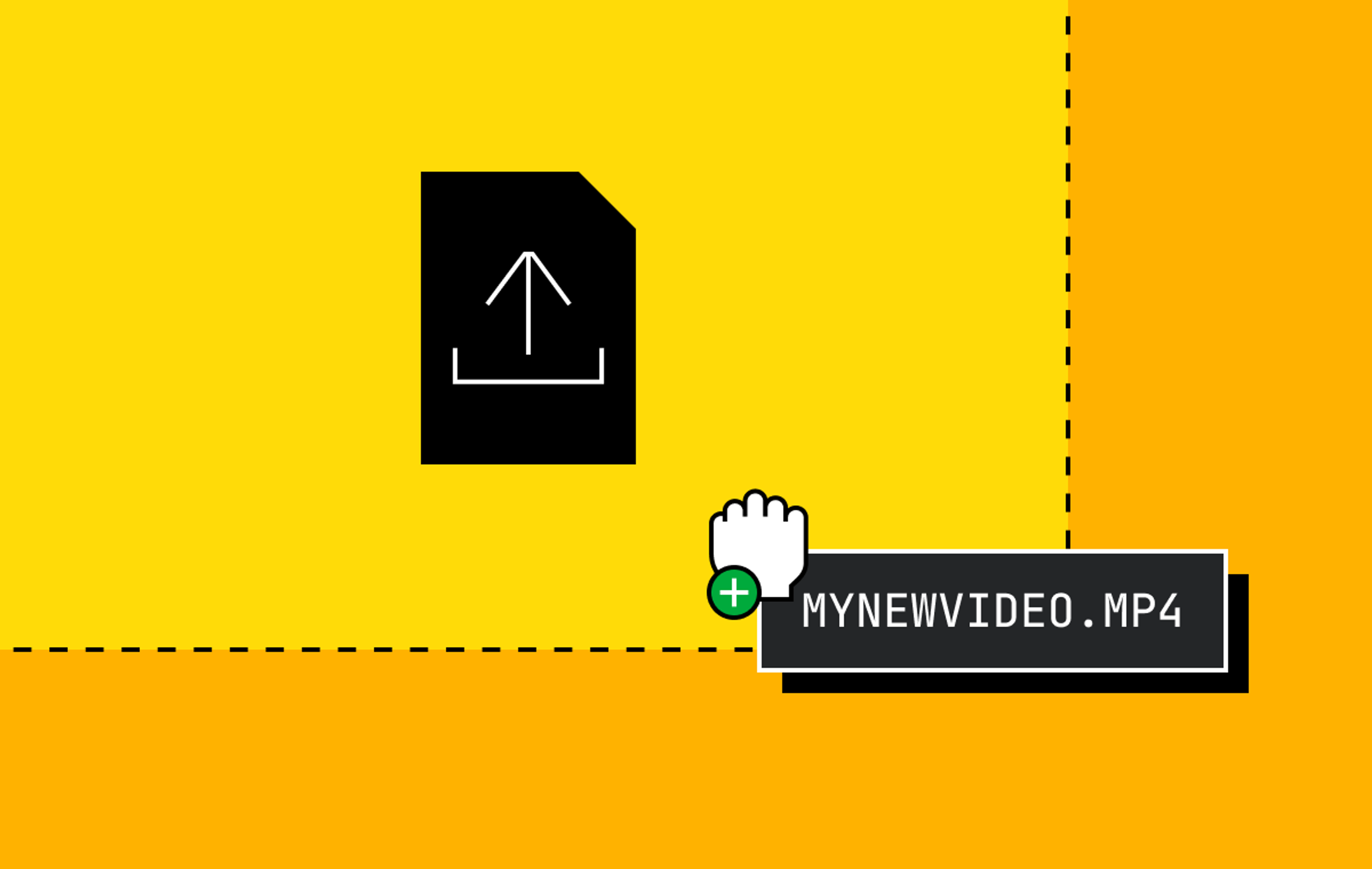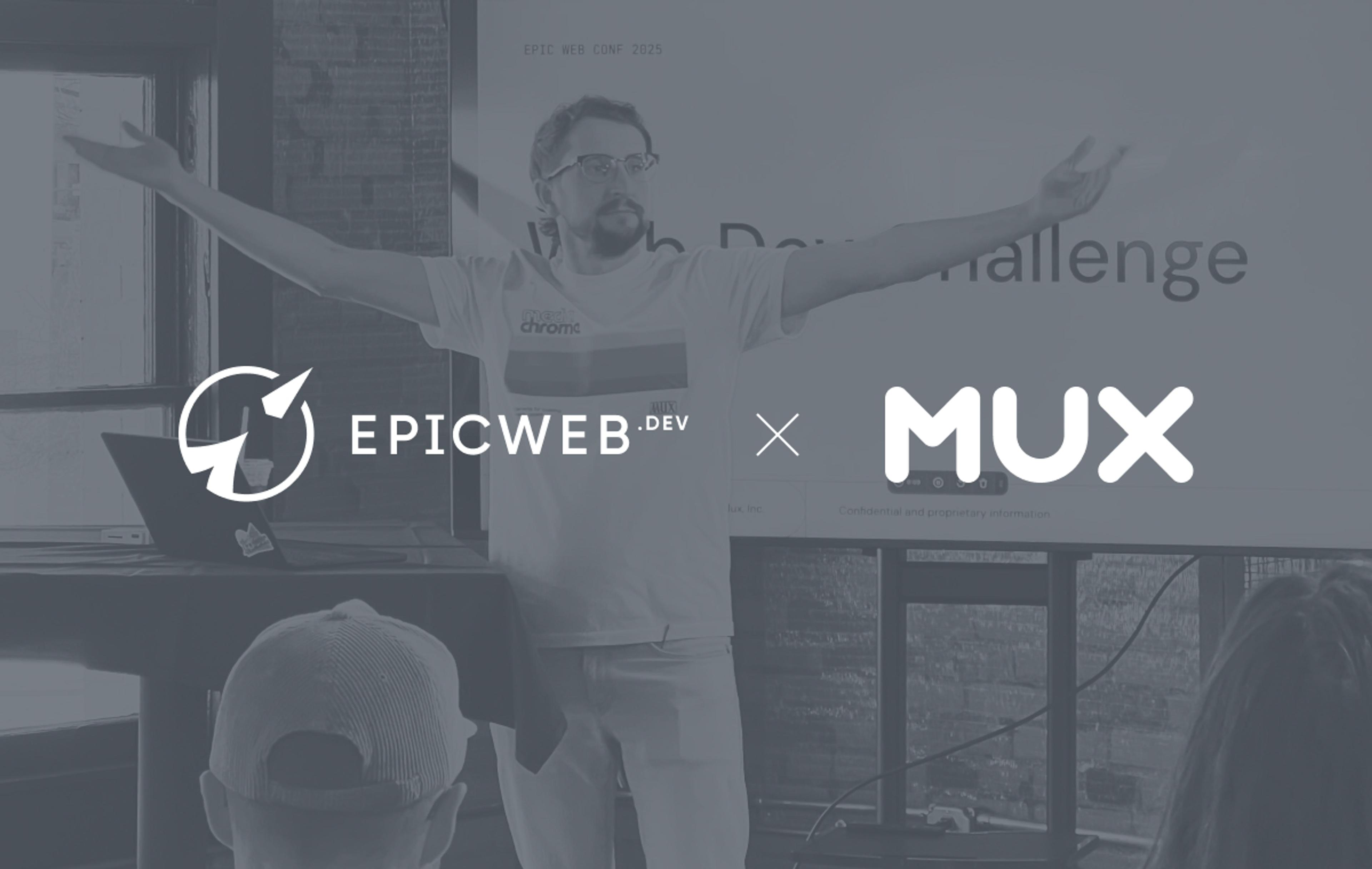You know what I want....or maybe you don't - The Thamesmen
We're a year in on the official rollout of our Partnerships program at Mux — a good time to reflect back on what we’ve learned so far. Over the past year we’ve built a strong foundation for a partnerships program that is not the old-school business development purgatory where non-revenue relationships used to go to fester. The Mux partnership program is built on mutually beneficial collaboration with strategic cloud partners (AWS and Google Cloud), platform or tech partners such as Sanity and Hive, and solutions or agencies such as Sweatworks and Endeavor Streaming. We measure impact based on Mux customer satisfaction and revenue.
Check out my interview on the Partnered Podcast with Adam Michalski here, where we talk about some of these experiences and what Adam sees from his vantage point:
Here are some of the lessons we’ve learned that can help you build your own programs.
Beginner mindset
Don't start with a preconceived notion that your partner program should be based on how companies you admire run their programs. Use a beginner mindset to unlearn what you think you know — and then build back up based on your company's unique superpowers and what your customers actually need. Leverage empirical data where it can be useful.
Naming
When it comes to highlighting your program’s function, the name is important. The right name signals compatibility to potential partners and pattern matches for potential new hires. Consider these band names, for example: The Thamesmen… The New Originals… and Spinal Tap. The same musicians, but much different signaling, right? We started with Alliances — which felt like putting on our grandparent's coat. Data shows that Partnerships is the most commonly used name for this type of function. It may not be unique, but it’s the best way to signal to your modern audience what you’re up to. Don't fight it.
Stand on the shoulders of giants
There are amazing partnership communities and resources that can help you find the right patterns to shape your program. The three that have been most useful to our team are the Partnership Leaders Slack group, Crossbeam content and resource guides, and the Partnered podcast. Don’t be afraid to ask your exec team and investors for introductions to other partner leaders who would be willing to share their own experiences.
Leadership buy-in
You’ll need executive buy-in and alignment from all other functional leaders in the organization. Partner teams should not be an island; they’re cross-functional by design. If your sales and marketing teams don't believe in the initiative, you won’t get anywhere when it’s time to operationalize partnerships and build programs together. Without product and engineering alignment, you’ll have no integrations to show for technology-focused partner functions. And if finance and operations aren’t aligned with the program, then good luck with tracking, marketplace purchases, billing, and compensation.
Internal PR
Building a net new function in an organization requires as much or more education internally as it does externally. Kudos to our team here at Mux for over-executing in building a culture of writing and documentation that has helped people understand what the Partnership team does day-to-day. Some of the greatest hits:
- Monthly group-authored newsletter (rotating editorship) that summarizes recent deal wins, upcoming partner marketing events, and new partners and programs.
- Biweekly office hours with a light agenda and an open forum for discussion. We routinely have a mix of product leaders, sales reps, and customer success leads gathering during these sessions.
- We use Notion for internal documentation and knowledge sharing. Although it takes extra effort, the team takes copious notes on all partner interactions. Partner vetting, approval, and content creation are managed through Notion as well. We even have tools like Crossbeam synced up to ping Slack every time a new customer overlap appears. And speaking of Crossbeam...
Crossbeam and The Matrix
Remember that scene in The Matrix when Neo starts seeing the world in code, and suddenly everything slows down and makes sense? That’s what Crossbeam does for your partner relationships. Armed with data that measures the number of prospects and customer overlaps, you’ll be able to prioritize where to spend your time, and your team will be empowered to say no (or not yet) to that cool new technology your developers are talking about.
What is your charter? Who is your customer?
Be clear about your constituencies and why you are building a partnerships program. We decided this was not going to be the old-school biz dev purgatory where non-revenue-generating relationships live. In a previous life, I remember being forced to take meetings with the COO's business school buddy. By tying your program to specific outcomes, you can help prioritize where to focus energies...and what to ignore. Measure twice, cut once.
Prioritize early
Integrations are like a gas that will fill whatever space you give them. There will NEVER be enough time or resources to build all the plug-ins and make all the connections with partners that you do in fact like. You need to prioritize your partners based on their ability to keep pace with you, customer overlap, and, ultimately, the impact on your revenue and key metrics.
Build vs. buy vs. good enough
Don't overbuild or overengineer until you feel the pain or truly understand what jobs need to be done in your org. If you don't bake, don't buy a stand mixer. Don't buy an avocado slicer when a butter knife will do. Crossbeam gives us superpowers, and Tackle saves us hours and hours of time. But Notion is just fine for one-to-many partner documentation. You may not need a specialized partner tool for every function.
Newton's third law
Whenever one object exerts a force on another object, the second object exerts an equal and opposite force on the first.
Take it from Isaac Newton: Reciprocity in partnerships is important. If you don't put energy into the relationship, you aren't going to get anything back. The concept of reciprocity should influence your attribution tracking, KPIs, and internal incentives. We provide incentives to our sales team to refer business out to Mux partners.
Cloud partners
Cloud partners can make a huge difference in your partnership practice. This is such a rich area that it could be a completely separate blog post. Three main lessons:
- Cloud partners are more than marketplaces to transact deals. A proper partnership will also leverage technical compatibility and product integrations. Effective cloud partnerships will integrate with partner infrastructure and first-party services and will leverage co-marketing, events, content, and co-selling relationships.
- Back to that physics lesson — you get what you put into cloud partnerships. if you get accepted into a cloud partner program and expect the leads to magically start trickling in, you’re going to fail. Ideally, you need multiple dedicated resources to build a fully fleshed-out relationship and execute the programs that make up the foundation of that relationship.
- Be opportunistic. Unless you’re Splunk or Palo Alto Networks, you’re a small fish in a big ocean of partners vying for attention. Say yes often, and find a way to meet each partner’s requests (even if they feel like endless forms and boxes to check).
Check out Justin Forth’s upcoming talk at the Partner Leader’s Catalyst Conference on how to design a cloud partnerships function within your organization.
Building a partnerships program is a marathon, not a sprint. I am grateful for the support and guidance from the partnerships community. I hope some of our learnings will help companies jumpstart their own partnership journeys. Remember, there’s no single template or playbook to work from. To start, you need buy-in from leadership and key internal stakeholders — sales, marketing, and customer success. From there, remember your physics, be ready to adapt.



